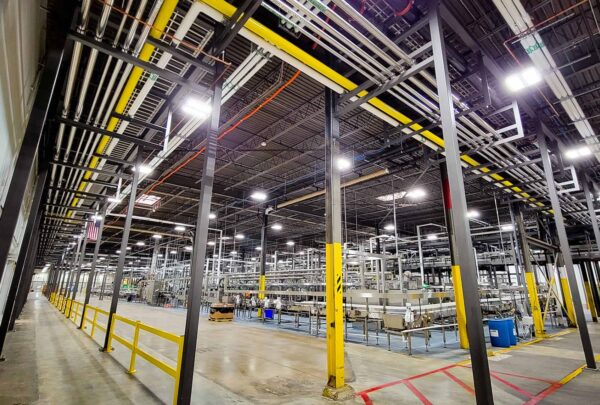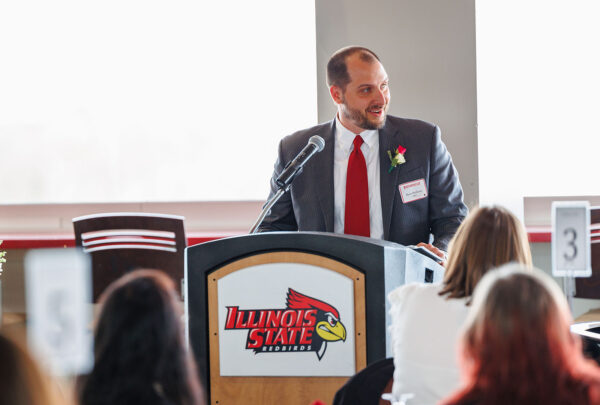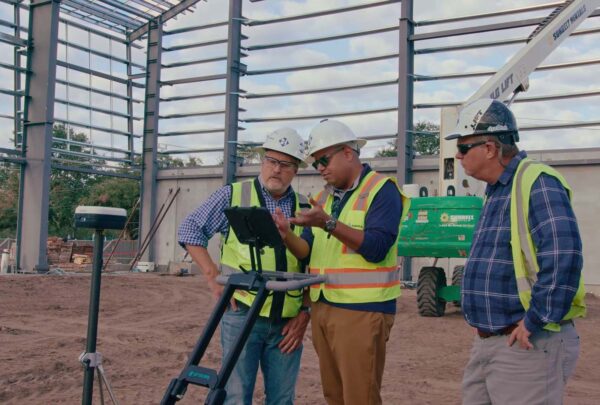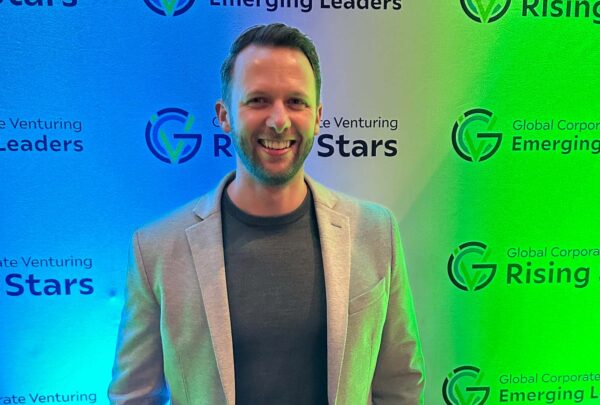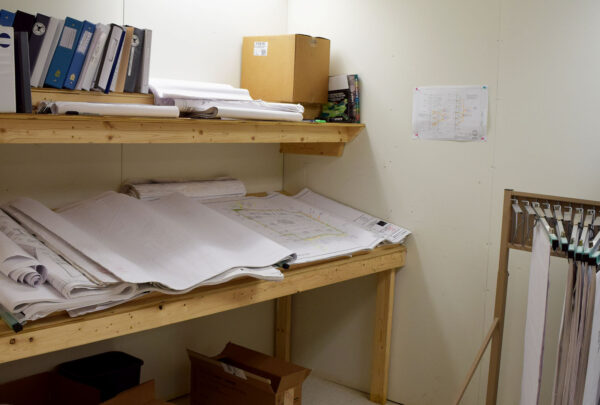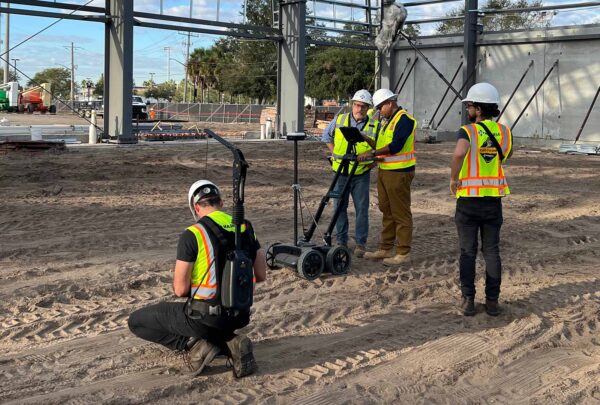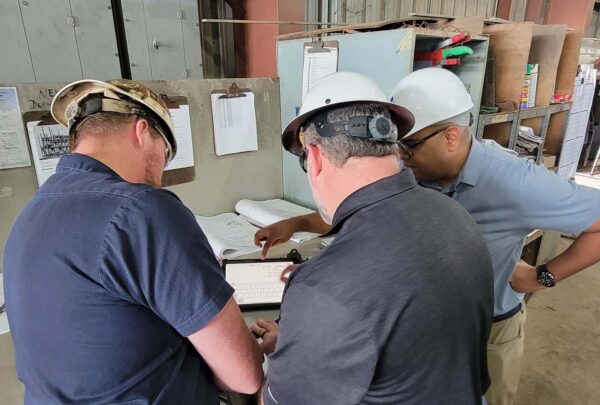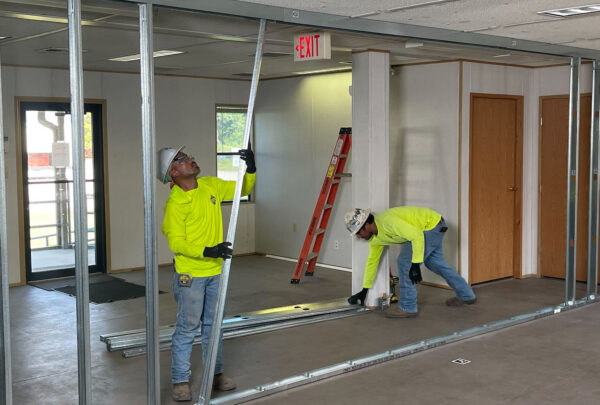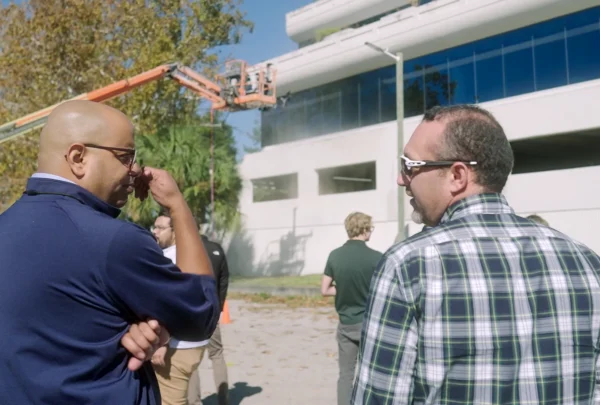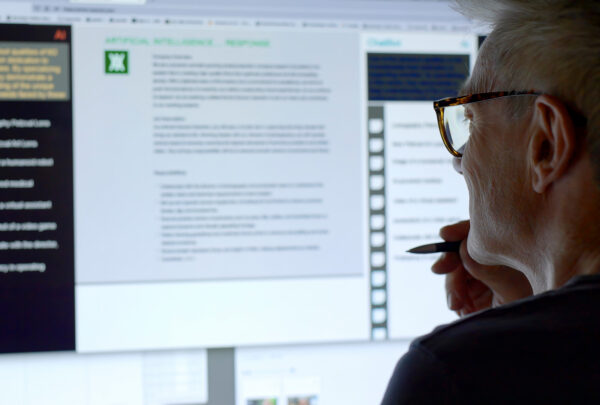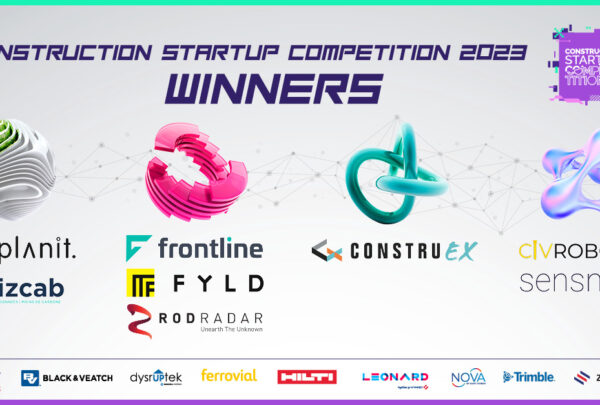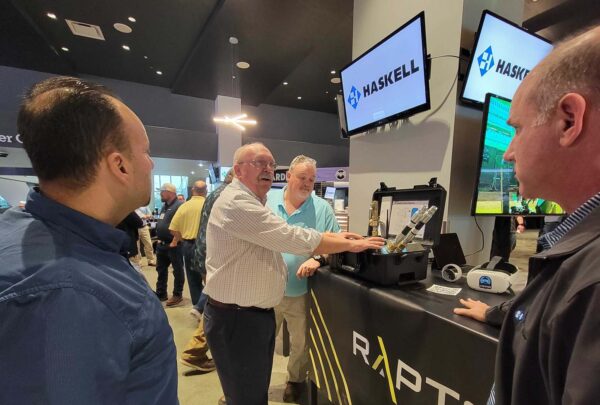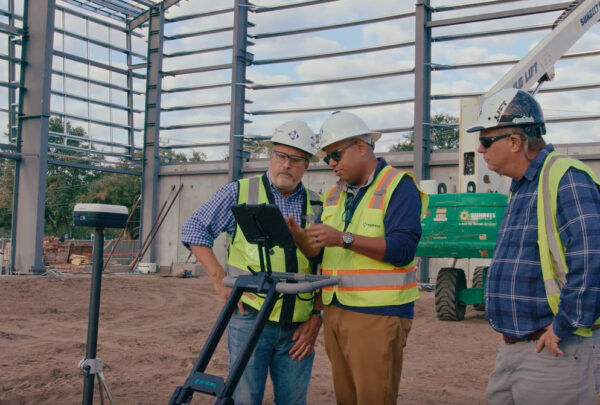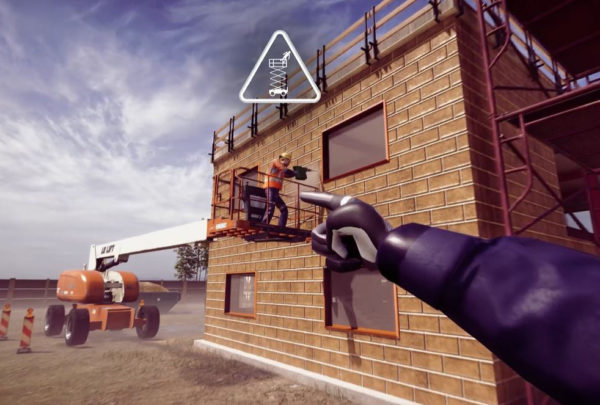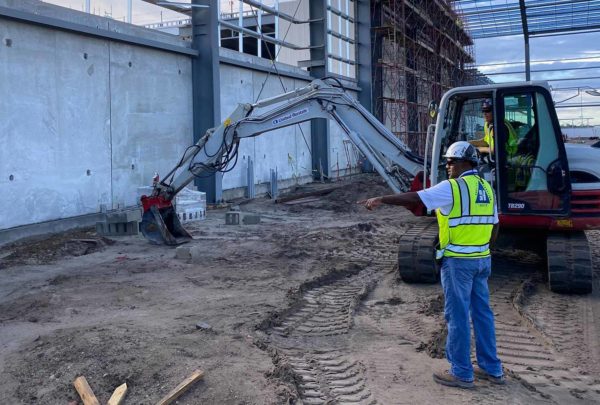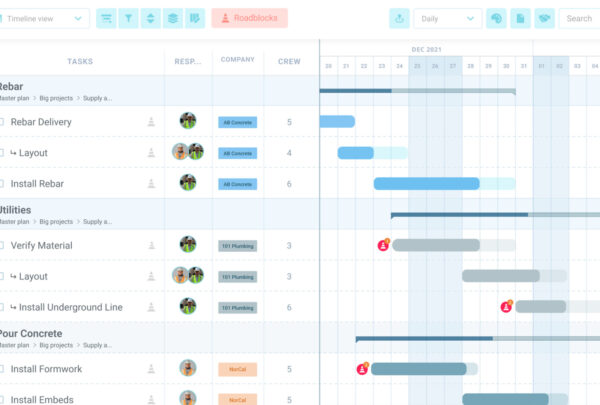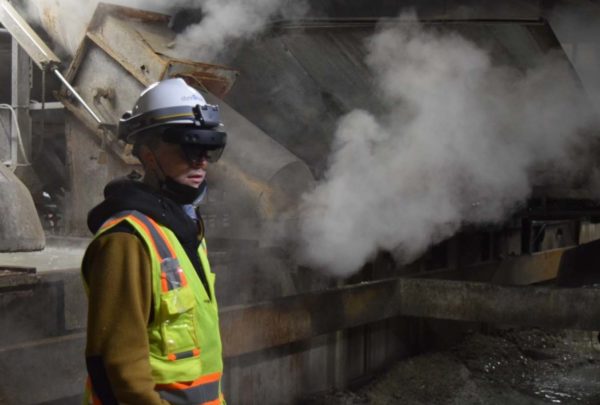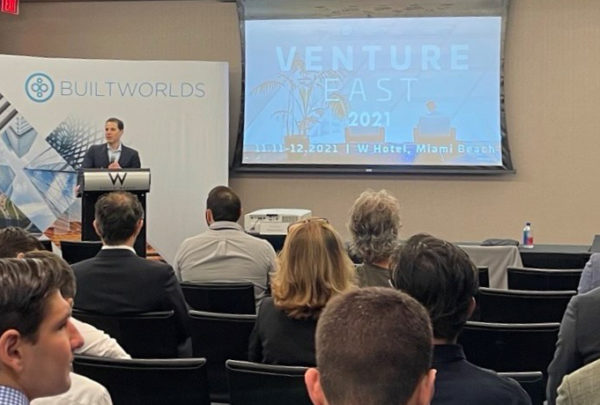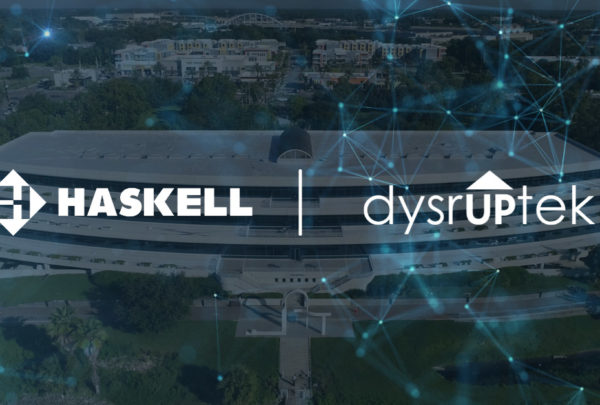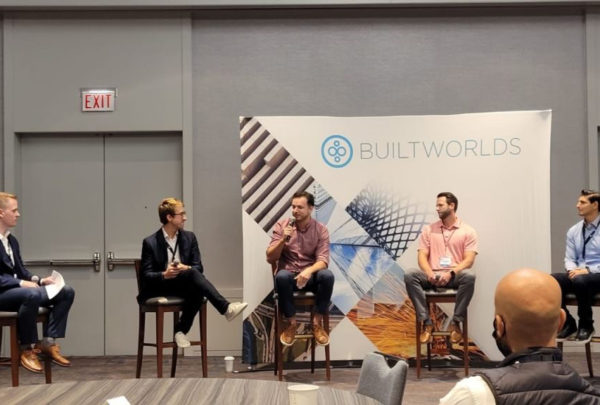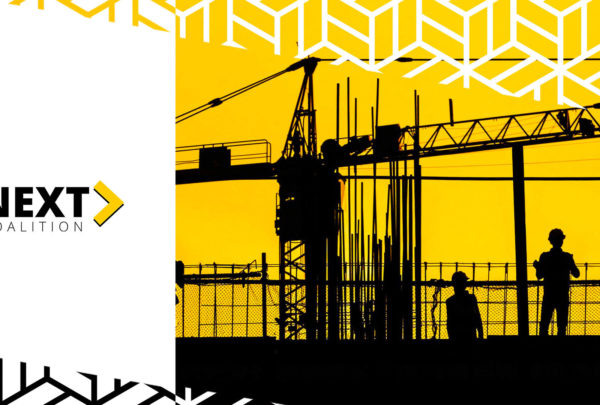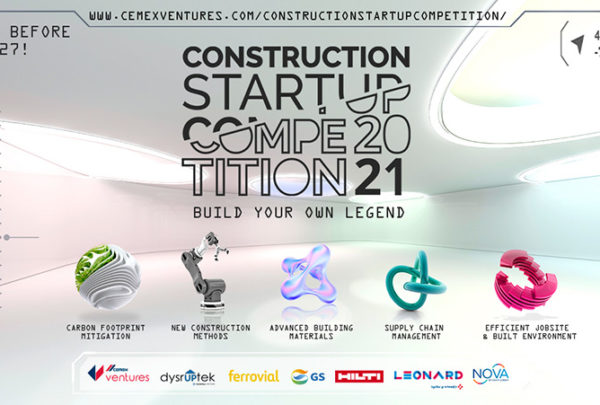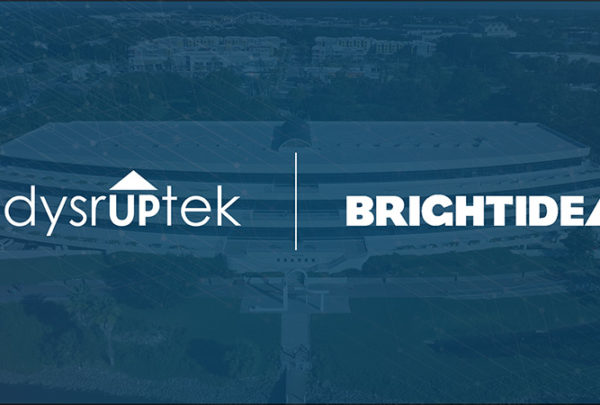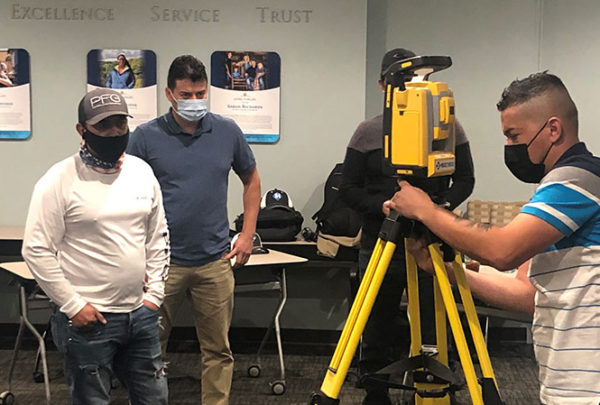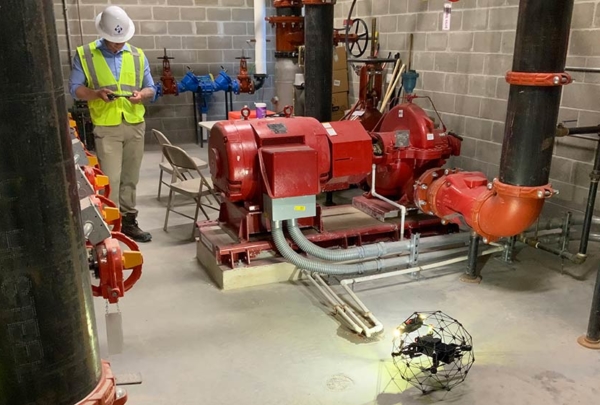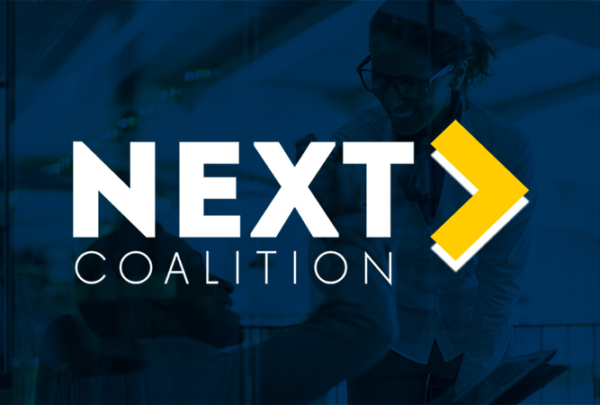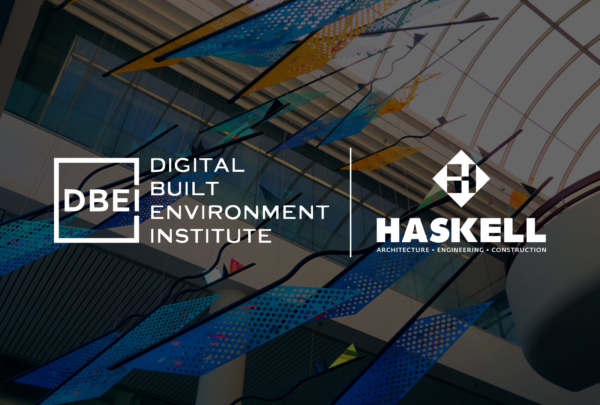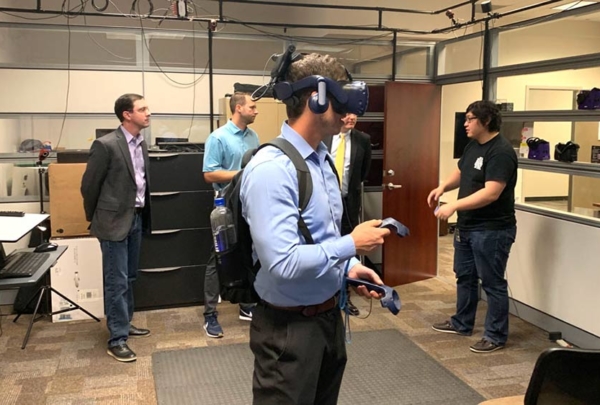Striving to remain at the vanguard of innovation in the Architecture/Engineering/Construction (AEC) industry, Dysruptek, Haskell’s innovation and venture capital arm, constantly scouts the market for emerging construction technology and researches construction technology startups seeking investment opportunities that will contribute to improved client solutions.
One such opportunity is blockchain. When most people hear the term “blockchain,” they think of Bitcoin and other cryptocurrencies. These digital currencies live on blockchain networks, but blockchain technology is capable of much more than just cryptocurrencies.
IBM defines blockchain as “a shared, immutable ledger that facilitates the process of recording transactions and tracking assets in a business network. An asset can be tangible (a house, car, cash, land) or intangible (intellectual property, patents, copyrights, branding). Virtually anything of value can be tracked and traded on a blockchain network, reducing risk and cutting costs for all involved.
“Business runs on information. The faster it’s received and the more accurate it is, the better. Blockchain is ideal for delivering that information because it provides immediate, shared and completely transparent information stored on an immutable ledger that can be accessed only by permissioned network members. A blockchain network can track orders, payments, accounts, production and much more. And because members share a single view of the truth, you can see all details of a transaction end to end, giving you greater confidence, as well as new efficiencies and opportunities.”
The essential components of a blockchain are its distributed ledger, immutable records and smart contracts.
Distributed ledger technology (DLT) gives participants access to all transactions completed on the blockchain network. DLT is more secure than traditional centralized networks because DLT functions on a decentralized database. A distributed ledger is practically immune to cybercrime because all information is stored on each computer in the network, meaning that hackers would have to attack all members of the network simultaneously for the hack to succeed.
All records stored on a blockchain network are immutable. No one in the network, including administrators, can delete or alter transaction data. Immutability increases network transparency: all transactions are visible to every member of the network, and erroneous transactions are permanent so participants will instantly know where and with whom the error lies.
“Blockchain at its core is designed to solve for many of the challenges that the AEC industry faces, specifically trust, transparency and efficiencies,” said Cutler Knupp, Haskell’s Director of Strategy and Technology Innovation.
A smart contract is a digital contract that sets conditions or milestones for transactions. Once the terms of the contract have been agreed upon, the smart contract will execute all processes and transactions when the predetermined conditions have been met and verified.
For example, a smart contract might stipulate that a subcontractor will be paid for foundation work once the building’s foundation has been poured. In this scenario, all the subcontractor would have to do would be to input into the network that the foundation is completed, along with images verifying this fact, and the contract would immediately distribute payments to the relevant parties.
“I am very excited about the promise of smart contracts with application in the construction industry,” Knupp said. “Smart contracts will enable automation that will reduce the need to intermediaries, saving time and money. Smart contracts, implemented correctly, will allow for centralizing all key terms and parties relating to the project for automatic enforcement of specific milestones. Holding all parties accountable, resolving potential disputes before they arise and encouraging positive behavior. Payments and supply chain also have great potential utilizing blockchain with transparency and accuracy across all contracting parties.”
In the AEC industry, blockchain can improve cash flow and payment terms, while also reducing administrative costs, fraud, liability, legal costs, and audits. Most importantly, blockchain provides a single source of truth for every project. Blockchain renders disputes between contractors obsolete because the network shows all parties in real time which contractual conditions have been met and which transactions have been executed. Plus, the network’s information cannot be edited or tampered with, eradicating any chance of fraud.
It will take time for the industry to fully integrate blockchain, but Haskell expects it to play a significant role in the business’ future.
“Technology adoption in AEC takes time and blockchain is still striving to gain mainstream industry recognition,” Knupp said. “Great strides have been made over the last few years however we still have a long way to go in driving standards and adoption of blockchain in our industry, but hey Rome wasn’t built in a day."
Do you have an interest in or an idea for innovation in construction? Contact the team at Dysruptek.

